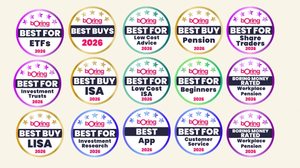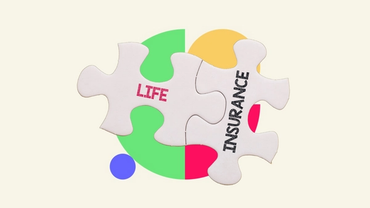Home • Articles • Income Protection vs Critical Illness insurance: How to choose the right back-up plan
Income Protection vs Critical Illness insurance: How to choose the right back-up plan
By Boring Money
1 Jan, 2025
Sometimes things happen in life that we didn't see coming. Illness and injury are among the most common reasons why some have to take time out of work - or leave it altogether. In fact, in the first quarter of 2024, over 2.5 million people in the UK were off work due to long-term sickness.[1]

Almost everyone will encounter a period of illness or injury during their working life, and with rates of serious diseases such as cancer on the rise, you might be worrying about how you can protect you - and your family's - finances should you be unable to work.
Thankfully there are ways you can do this by taking precautions and planning ahead. There are two common insurance products aimed at solving this very dilemma: Income Protection insurance and Critical Illness cover.
Insurance can be a headache at the best times, so how do both of these policies really work and which one might be best for you? Though they're both types of insurance, there are big difference between Income Protection and Critical Illness, including how they pay out and what you can claim for.
Why is it important to have health-related income insurance?
You might be wondering why it's worth having health-related income insurance at all. Here's a few reasons why having one of these policies in place can help you during a time of need:
Income Protection vs Critical Illness
What is Income Protection insurance?
How does Income Protection insurance work?
Valid if you can’t work because of illness or injury which results in loss of income
Payments are made to you as a regular amount every month
Typically pay out between 50% and 70% of your gross (pre-tax) monthly earnings
Continues until you return to work, retire, pass away, or when your plan ends
No need to pay Income Tax or National Insurance contributions
Does not pay out if you become unemployed
Costs less if you set a waiting period before you can claim
What is Critical Illness cover?
How does Critical Illness cover work?
Valid only for specified critical illnesses, depending on the provider you have selected
Usually covers cancers, heart attacks, strokes, organ failures and more
Pays out 14 days after a diagnosis or medical procedure
Payment is a large, one-off lump sum
Generally costs much less than Income Protection insurance
Policies will always vary from provider to provider, so make sure you read the details of what is and isn’t covered in the plans you consider.
Income Protection vs Critical Illness: Which is best for you?
To answer this question, your best bet is to talk to an independent financial adviser, who will help you define how much cover you need and which providers are the best fit. Of course, hiring an adviser would mean an extra bill to pay, but in the long-run it’s usually worthwhile.
If, on the other hand, you would prefer to go the DIY route, here’s what you should consider when deciding between Income Protection insurance and Critical Illness cover.
Do I need Critical Illness cover?
It’s less vital to take out a plan if you have other backups, such as a substantial savings stash or a partner who could cover living costs. You might also be fine without it if you don’t have many financial commitments like dependents and mortgage payments.
Before you take out a new policy, check whether you already have some sort of illness cover included as a benefit with any of your insurance policies or mortgages. Also check with your employer to see if you're entitled to any employment benefits that would pay out if you’re ill.
Do I need Income Protection cover?
Although many employers will support people with some level of income if they fall ill, this won’t last forever. Generally, employees are moved to Statutory Sick Pay (SSP) within six months, which works out to just over £100 a week. This drop in regular income can wreak havoc on your finances so Income Protection can give a much-needed boost if you're caught in this scenario.
As is the case with Critical Illness cover, you can probably go without Income Protection insurance if you’re confident you could get by on SSP and benefits alone, if you have substantial savings, or if you know you have a generous and supportive family.
If you decide to take out Income Protection, you’ll first have to figure out how much income you need to cover. To find this figure, start with your income after tax, then subtract what you would get in state benefits and work-related costs like travel and food, and add on any expenses you might need if you become ill, such as extra heating or medical equipment.
Should I get both Critical Illness and Income Protection?
There is certainly an argument for getting both Critical Illness cover and Income Protection insurance... albeit an expensive argument.
If you have both and a critical illness strikes – let’s say cancer – then you could use the hefty lump sum from your Critical Illness cover to pay off debts, clear the mortgage, or get yourself the best private healthcare. At the same time, you could use your Income Protection to handle the day-to-day bills and any regular monthly expenses for as long as you're off work.
This double-whammy approach would support you both at the time of diagnosis and into the future, so if you're able to get both policies then it may be a good idea to do so if you feel like you may need it.
How to buy your back-up plan
If you go down the independent financial adviser route, you can rely on them to scour the market and bring you a hand-picked selection of the best options for you. Simple. Head over to our adviser directory and use the advanced filters to search specialisms for 'Insurance' to find one best suited to help you.
If you go down the DIY route, the usual comparison sites - such as Compare The Market and MoneySuperMarket - are a good place to start your search. Generally, Income Protection is easier to buy as a standalone product, with Critical Illness cover more often coming as an add-on to Life Insurance policies (but not always, so make sure to check).
As ever with chunky, expensive products like these, take your time and triple-check the fine print at every stage - your future self will thank you.
Join Boring Money
Already have an account? Login
---





